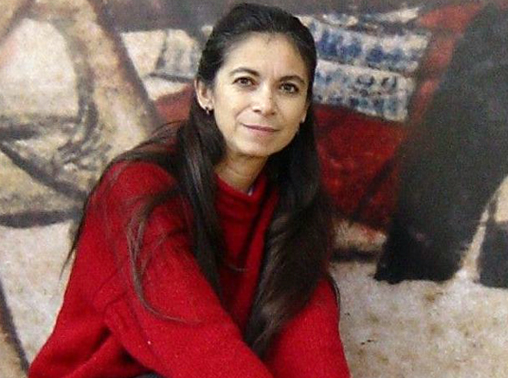Featuring a kidnapping, a prison, a drug lord, an inmate called the Inmate-Prince, and a prostitution network, Carmen Boullosa suggests through stark satire in this story that truth is, indeed, stranger—and more complex—than fiction. At the same time, she addresses the narrative gaps between truth and fiction head-on with four levels of meta-narrative.
To begin, she writes that this piece is “a conversation between a film producer (John Grandcaca), a multi-award-winning Mexican writer (Julio de la X), and the assistant producer, with a moralizing note from the author.” At once, we see four levels of narration: the writer’s script, the summary of the script from the assistant producer, the commentary on the summary of the script from the producer to the writer, and the commentary from the fictional stand-in for Boullosa. Yet the narrative proves even wilder than the layers might at first suggest.
Mexico released official crime rate statistics from the last several years this spring. While some claim the statistics are dubious, the publication highlights a high number of kidnappings, extortions, and thefts across the country. Boullosa draws attention to these through dark humor here, and in doing so, forces the reader to reflect on the gaps between truth and fiction and how we, as readers, navigate that divide.
—Kristina Zdravič Reardon
***
A conversation between a film producer (John Grandcaca), a multi-award-winning Mexican writer (Julio de la X), and the assistant producer, with a moralizing note from the author.
Dear Assistant to Grandcaca: Would you be so kind as to pass John the attached proposal, along with the accompanying script? Thank you for your attention,
Esteemed Julio de la X: It would be a pleasure. I will do it immediately. Regards, Grandcaca’s Assistant.
Dear Grandcaca: Here you have “The Jails Take to the Streets.” After months of paralysis (or has it been a year already?), I’ve been able to write it all down in one sitting:
In the style of Arriaga’s films, several seemingly independent threads are intertwined:
1. A (fake) random kidnapping. The phone rings in a millionaire’s house, and his wife answers to hear: “We have kidnapped your husband. You have three hours to collect one million pesos, to be deposited in account xxx at xxx bank, which you can do online. (From jail, two prisoners perpetrate the crime, using their cell phones and temporary accounts, with the complicity of the bank employees and the mobile network).
2. A northern city is paralyzed by order of a famous drug lord, a prisoner in the jail, who, with his cell phones, summons 13,000 guys outside—they are his army, many are armed. They close the main streets, terrorizing the city.
3. A forced prostitution network in women’s prisons in the capital; guards and high penitentiary officials are involved. The prisoners are literally sex slaves.
4. In a considerably smaller—and until recently, idyllic—city (where the birds sing at the park’s central kiosk), a convoy of three vehicles leaves the jail at 8 every night, carrying the Inmate-Prince and other prisoners, all armed. This convoy calls itself “The Avenger.” As it leaves off-hours, it makes a bloodbath of parties, dances, bars, girls’ sweet fifteen celebrations, christenings, and little grandmothers’ birthdays. (The prison warden is the godmother to the Inmate-Prince’s child).
The knots in which these threads will become tangled:
1. We’ll see a cell phone, straight out of its box, passed from one hand to another (from the hands of the allegedly kidnapped businessman—this is when he receives a sexual proposition, at which point his wife will be called as he “engages” in sexual pleasures—to the hands of a petty thief who sells it to one of the guys who paralyzes the streets in the northern city, who gives it to the Inmate-Prince).
2. The prisoner—the sex slave—is removed from jail and brought to bed with the so-called businessman, while a small-time crook surreptitiously enters the room and will steal the businessman’s wallet, phone, car keys, and credit cards—along with, apparently, the prostitute’s.
Julio: take a vacation. If for some reason you can’t, take three Valiums immediately, or go do yoga, or try trading your wife in for another woman. What the hell is wrong with you? You’ve lost your sanity. I can’t make heads or tails of this. Who is going to believe something so absurd? Useless to read the script. Don’t dwell on this any longer. I anxiously await the next one. Your friend,
John Grandcaca
(Author’s note on the conversation: Julio was punished for lying and stealing. He failed to confess that his script was 100-percent stolen from a real event in Mexico).
***
Carmen Boullosa (b. Mexico City, 1954) is the author of fifteen novels and numerous poems, plays, and short stories. She is a co-founder of Mexico City’s Citlaltépetl Refuge House. She currently serves as a contributing editor of Books Without Borders and has been visiting professor at San Diego State University, Georgetown, and La Sorbonne. She lives in New York City.
At any given moment, words in three different languages were heard around the dinner table in writer Kristina Zdravič Reardon’s childhood. She finds that translating literature from her grandparents’ native Slovene and Spanish to English is a challenging—yet somehow natural—pursuit. Reardon holds an MFA from the University of New Hampshire and has been awarded a Fulbright translation grant and a summer fellowship from the National Endowment for the Humanities.

